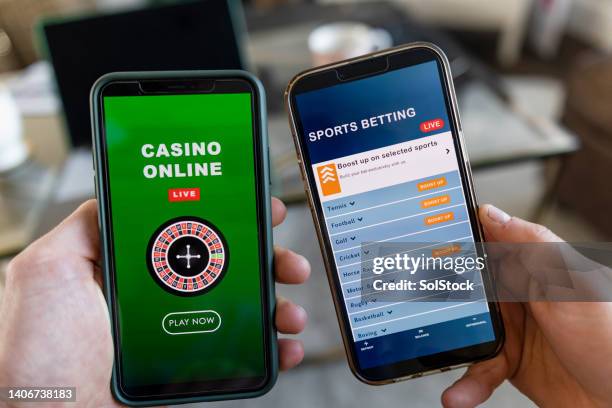
Guide to Responsible Gambling 2025
As the world of gambling continues to evolve, it becomes increasingly important to prioritize responsible gambling practices. The Guide to responsible gambling 2025 https://betandreas-now.com/az/ provides vital insights into how players can engage responsibly while enjoying their gaming experiences. In this guide, we explore the importance of setting limits, recognizing the signs of gambling addiction, and utilizing available resources to create a safer gambling environment.
Understanding Responsible Gambling
Responsible gambling refers to the set of social responsibility initiatives undertaken by the gambling industry to promote awareness about gambling-related issues. This concept aims to ensure that gambling remains an enjoyable activity while minimizing the risks associated with problem gambling. As we head into 2025, the approach to responsible gambling is more important than ever, given the rapid growth of online gaming platforms and mobile applications.
Setting Realistic Limits
One of the fundamental aspects of responsible gambling is setting and adhering to personal limits. These limits can include:
- Time limits: Decide in advance how long you intend to gamble and stick to that timeframe.
- Financial limits: Set a specific budget for gambling activities and avoid exceeding it, regardless of the circumstances.
- Loss limits: Determine in advance how much you are willing to lose and stop playing when you reach that amount.
By establishing clear limits, players can better manage their gambling habits, preventing potential issues related to excessive gambling.
Recognizing Signs of Problem Gambling
Awareness of the signs of gambling addiction is crucial for promoting a responsible gambling culture. Common indicators that may suggest the development of a gambling problem include:
- Feeling a need to gamble with increasing amounts of money to achieve the desired level of excitement.
- Becoming restless or irritable when attempting to reduce gambling activities.
- Using gambling as a way to escape from issues or relieve feelings of helplessness, guilt, or anxiety.
- Jeopardizing or losing significant relationships, jobs, or educational/career opportunities because of gambling.
- Borrowing money or selling personal items to finance gambling activities.

If you or someone you know is showcasing these signs, seeking professional help is imperative. Early intervention can mitigate the negative consequences associated with problem gambling.
Utilizing Available Resources
In 2025, a wide array of resources is available to assist individuals in practicing responsible gambling. Here are some key resources that can provide support:
- Self-exclusion programs: Many gambling operators offer self-exclusion options, allowing players to voluntarily exclude themselves from gambling activities for a set period of time.
- Hotlines and support groups: Organizations such as Gamblers Anonymous or the National Council on Problem Gambling offer confidential support and advice for individuals struggling with gambling addiction.
- Financial counseling: Professional financial advisors can help individuals develop budgets and plans to manage their finances effectively, reducing the financial impact of gambling.
Implementing Technology for Safer Gambling
As technology advances, the gambling landscape transforms. In 2025, many online casinos and gaming platforms incorporate tools to promote responsible gambling. These technological solutions help players monitor their habits and maintain control. Examples include:
- Account activity tracking: Many platforms provide players with the ability to track their gambling activity, offering insights into time spent and money lost.
- Reality checks: This feature can be activated to remind players of how long they have been gambling, prompting breaks when necessary.
- Limit setting tools: Many gaming sites feature built-in tools that allow players to set deposit limits, loss limits, and time-based alerts.
The Role of Education and Awareness
Education plays a vital role in promoting responsible gambling. Awareness campaigns are critical for informing players about the potential risks associated with gambling and teaching them how to gamble responsibly. Educational initiatives should focus on:
- Dispelling myths about gambling, such as misconceptions around ‘favorable odds’ and ‘hot streaks.’
- Promoting the idea that gambling should be viewed as a form of entertainment rather than a source of income.
- Encouraging open conversations about gambling-related issues and the importance of seeking help when necessary.
Conclusion
In conclusion, responsible gambling is a shared responsibility that requires ongoing commitment from players, operators, and regulators alike. By setting strict limits, recognizing the signs of problem gambling, and utilizing available resources, individuals can enjoy a safe and entertaining gambling environment. As we move into 2025, it’s essential to stay informed and proactive in practicing responsible gambling, ensuring that gaming remains an enjoyable pastime for all.
Leave a Reply